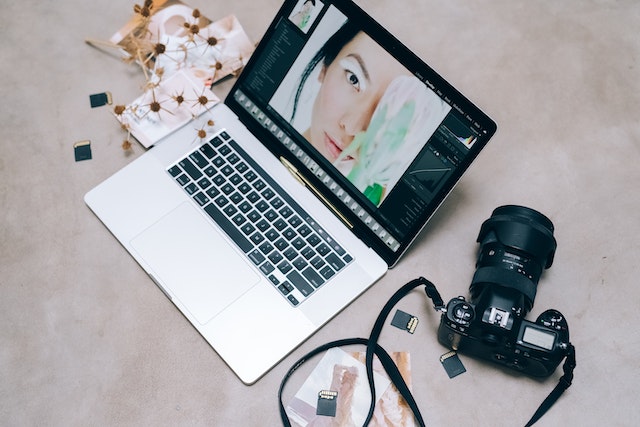Can Photo Editing on Social Media Contribute to Eating Disorders?

The impact of social media on the psychological state has become painfully clear in recent years. As technology develops and people spend more time online, audiences are increasingly exposed to the harmful effects of these platforms. Not only do they promote constant unhealthy comparisons with others, but they also blur the lines of reality in a way that makes it impossible to measure up to the imaginary world we see online, potentially leading to poor mental health, body dysmorphia, and eating disorders.
The rising popularity of photo-editing features is facilitating the make-believe aspect of social media in worrying new ways. They casually encourage the habit of creating a false visual narrative for ourselves, which isn’t just about giving the impression of an enviable lifestyle anymore – it’s about how we actually look. This can inevitably result in a worry that social media’s associated risks around mental health challenges, not least eating disorders, in this case, are greater than ever.
At the tap of a screen, filters on Instagram, Facebook, and other platforms, together with dedicated photo-editing apps like Facetune, allow facial features to be sculpted, blemishes to be eliminated, and body proportions to be altered. While this manipulation of reality may not be a new idea, it is an extension of what social media users have been doing for years – maintaining an illusion of perfection with a carefully curated online presence.
These negative beliefs around self-image can eventually lead to deeply damaging behaviors, such as body dysmorphia, which is how eating disorders can start. Once a disorder like anorexia or bulimia takes control of your life, treatment is typically the most effective course of action for restoring emotional well-being and a healthier relationship with food and your own body.
The impact of edited photos on self-esteem
Of course, presenting a fictional version of ourselves is guaranteed to have serious consequences on self-esteem over time. These retouched images can erode the arrogance of both the people creating them and the people viewing them. A negative view of body image and body dysmorphia are common results of photo editing. Photo editing allows anyone to pursue specific, idealized, and unachievable beauty standards, hiding our real selves from the globe and discarding any notion of accepting our flaws and differences.
Seeking acceptance from others online during this manner is very damaging in various ways; a number one issue is that it ties our self-worth with our physical appearance. Social media brings a large amount of pressure to adapt to what others will deem attractive, which perpetuates negative beliefs about our bodies. Greater body dissatisfaction is linked to increased symptoms of psychological state conditions and may end in the next risk of eating disorders.
A 2019 study showed how the net is changing our brain function, particularly with the ‘digital manipulation of images to inflate physical attractiveness’. The time spent on social media was shown to correlate with mental state problems, including depression and suicidal feelings, in teenagers, particularly girls. Research has shown that the bulk of teenagers spends quite two hours per day on social media, so it’s clear why there’s a growing mental state crisis in this age bracket.
The growing gap between fiction and reality
In this same vein, the struggle with embracing our real, unfiltered identity is worsened by the very fact that influencers are editing their content too. When celebrities make their aspirational existence seem rather more unattainable, the disconnect between reality and fantasy grows even wider. Not only are our friends airbrushing their appearance, but supermodels are making their waists look even thinner too. this implies that existing role models become even more unrealistic to measure up to, as their followers – the those who research and constantly compare themselves to them – judge their own bodies supported a man-made reality. The impact on self-worth then becomes even more devastating because of the massive reach of those influencers, with one edited photo bringing out insecurities in thousands or legions of people.
A 2019 psychological state Foundation study among teenagers (aged 13-19), showed that one in four girls and one in ten boys had edited their face or body in digital photos, thanks to poor body image, which could lead to severe body dysmorphia presently in life. The study also found that over a 3rd of young adults (aged 18-24) had recently felt shame over their body image, with one in four feeling overwhelmed by their negative feelings about their appearance. The harm caused by the net world doesn’t just affect teenagers. 22% of the adult people in the study said that they had worried about their body image as a result of the posts they saw on social media, compared with 22% of teens.
Another 2019 study showed how social media has encouraged an increase in the desire for plastic surgery among women aged 18-29. this implies that its impact is becoming clearer than ever, causing people to change their appearance not only online but in the real world too. A 2016 study also showed the impact on body image of even older women in the time of life and beyond, thanks to the over-representation and glorification of youth within the media. When it involves social media and photo-editing apps particularly, however, it does seem logical that the consequences on self-esteem are worst among younger age groups, who are the largest users of those platforms.
